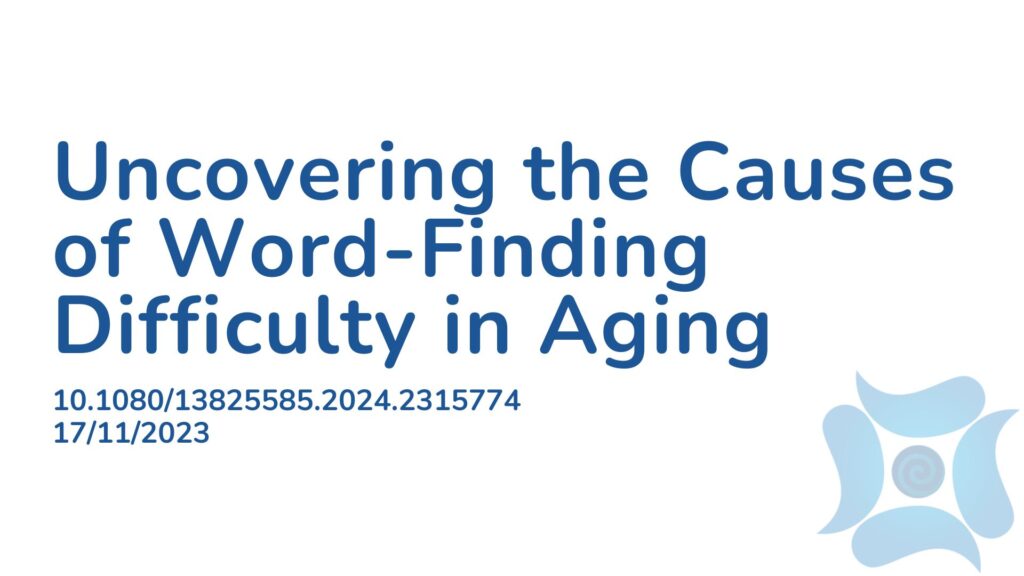Summary:
As a frequently reported cognitive challenge linked to getting older, word-finding difficulty (WFD) is widely observed in neuro-degenerative conditions like dementia and Alzheimer’s Disease (AD). Consequently, the severity of WFD could serve as an indicator to differentiate between normal aging and early-stage neurological disorders. To gain deeper insights into the cognitive processes underlying age-related WFD, extensive research on word production in aging has led to the formulation of distinct perspectives on cognitive aging. The poor processing speed theory suggests a generalized slowing down of cognitive processes, while another proposes a specific difficulty in suppressing irrelevant information. On the other hand, an “information specific” theory, known as the transmission deficit hypothesis (TDH), suggests a breakdown in retrieving phonological word forms during language production. To evaluate these theories, this paper conducted an online task utilizing pictures and words. A total of 125 healthy adults aged 18 to 85 participated in the task, alongside an executive function assessment and analysis of natural speech to quantify WFD. The results showed that overall reaction time for word retrieval emerged as the most reliable predictor of spontaneous WFD and decline in executive function, including changes in general talking speed. This means that talking speed and reaction time should be tested as part of standard assessments to help clinicians detect cognitive decline faster and support older people as they age.
Abstract:
Word-finding difficulty (WFD) is a common cognitive complaint in aging, manifesting both in natural speech and in controlled laboratory tests. Various theories of cognitive aging have addressed WFD, and understanding its underlying mechanisms can help to clarify whether it has diagnostic value for neurodegenerative disease. Two influential “information-universal” theories attribute it to rather broad changes in cognition. The processing speed theory posits a general slowdown of all cognitive processes, while the inhibitory deficit hypothesis (IDH) predicts a specific problem in suppressing irrelevant information. One “information specific” theory of language production, the transmission deficit hypothesis (TDH), posits a breakdown in retrieval of phonological word forms from a corresponding lemma. To adjudicate between these accounts, we administered an online gamified covert naming task featuring picture-word interference (PWI), previously validated to elicit similar semantic interference and phonological facilitation effects as overt naming tasks. 125 healthy adults aged 18 to 85 completed the task, along with a battery of executive function tasks and a naturalistic speech sample to quantify WFD in connected speech. PWI effects provided strong support for the TDH but limited support for IDH, in that semantic interference increased and phonological facilitation decreased across the lifespan. However, neither of these effects on single-word retrieval associated with WFD measured in connected speech. Rather, overall reaction time for word retrieval (controlling for psychomotor slowing) was the best predictor of spontaneous WFD and executive function decline, suggesting processing speed as the key factor, and that verbal reaction time may be an important clinical measure.
Article Publication Date: 17/11/2023
DOI: 10.1080/13825585.2024.2315774




